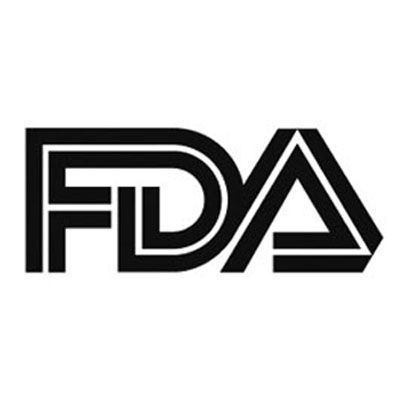FDA Grants Orphan Drug Status to Epcoritamab for Follicular Lymphoma Treatment
Epcoritamab had been granted orphan drug designation by the FDA for the treatment of follicular lymphoma and is being studied in a phase 1/2 clinical trial.

The FDA has granted orphan drug designation to epcoritamab (GEN3013; DuoBody®-CD3xCD20), for the treatment of follicular lymphoma (FL), according to a press release issued by Genmab A/S.1
Epcoritamab is a novel IgG1-bispecific antibody under investigation in the phase 1/2 EPCORE NHL-1 clinical trial and other studies. EPCORE NHL-1 is an open-label, multicenter, safety study (NCT03625037) of epcoritamab in patients with progressive or refractory B-cell lymphoma.
The study aims to enroll 486 patients and assess them on treatment with epcoritamab in 2 phases. In the first part of the study, the goal is to escalate the dose of the agent to determine the maximum-tolerated dose and the recommended phase 2 dose (RP2D). The safety profile of the agent will also be established during phase 1. In the expansion phase, additional patients will be administered the RP2D of epcoritamab to determine its safety and efficacy.2
The coprimary end points of the study include adverse events (AEs), tolerability, and clinical efficacy. The secondary end points of the study include pharmacokinetics, immunogenicity-anti drug antibody, and patient-reported outcome.
Patients are eligible to enroll in the dose-escalation phase of the study given they have either diffuse large B-cell lymphoma (DLBCL), high-grade B-cell lymphoma, primary mediastinal large B-cell lymphoma, follicular lymphoma (FL), mantle cell lymphoma, small lymphocytic lymphoma, or marginal zone lymphoma. All patients are required to have relapsed, progressive, and /or refractory disease, an ECOG performance status of 0-2, measurable disease, and acceptable renal and liver function.
Inclusion in the study further requires that patients have been treated with at least 2 therapies including an anti-CD20 monoclonal antibody containing a chemotherapy combination regimen, failed prior autologous hematopoietic stem cell transplantation or ineligible for autologous stem cell transplantation, and have at least 1 measurable lesion to be included in the dose-expansion phase of the study.
The study is being conducted at 93 locations in the United States, Europe, the Oceania, and Asia. Sixty-two of the treatment locations are actively recruiting patients with progressive or refractory B-cell lymphoma who meet the study’s requirements. Aside from the EPCORE NHL-1 study, epcoritamab is being investigated for the treatment of DLBCL or FL versus standard of care (NCT04663347) and in Japanese patients with relapsed or refractory B-cell non-Hodgkin lymphoma (NCT:04542824).1,2
“This orphan drug designation is an important milestone for epcoritamab,” said Jan van de Winkel, PhD, chief executive officer of Genmab, in the press release.1 “With AbbVie, we remain committed to further developing epcoritamab in this patient population, as well as in patients diagnosed with other B-cell hematologic malignancies.”
REFERENCES:
1. Genmab Announces U.S. Food and Drug Administration granted orphan-drug designation to epcoritamab (DuoBody®-CD3xCD20) in follicular lymphoma. News release. Genmab A/S. March 8, 2022. Accessed March 9, 2022. https://bit.ly/3MM7C5Y
2. GEN3013 trial in patients with relapsed, progressive or refractory b-cell lymphoma. Clinicaltrials.gov. Accessed March 9, 2022. https://bit.ly/3IWKIWZ
Examining the Non-Hodgkin Lymphoma Treatment Paradigm
July 15th 2022In season 3, episode 6 of Targeted Talks, Yazan Samhouri, MD, discusses the exciting new agents for the treatment of non-Hodgkin lymphoma, the clinical trials that support their use, and hopes for the future of treatment.
Listen
Later-Line CD19 and Bispecific Therapies Considered After CAR T
October 1st 2024During a Case-Based Roundtable® event, Christopher Maisel, MD, discussed third- and fourth-line therapy and barriers to bispecific therapy use in diffuse large B-cell lymphoma in the second article of a 2-part series.
Read More